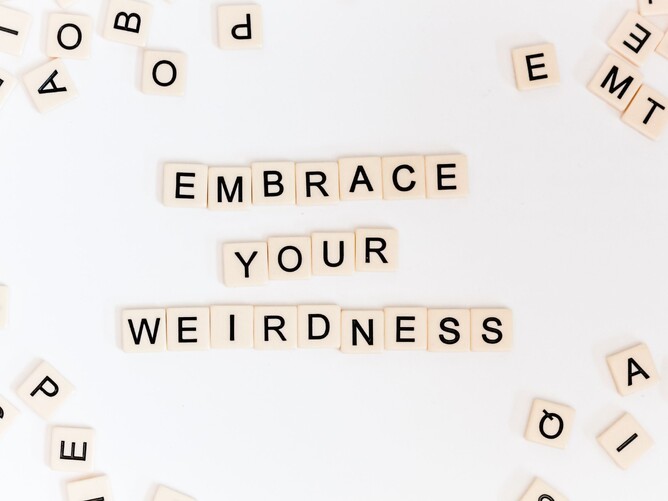It’s a tricky job trying to name your business.
Over the years I’ve worked with many start-ups, and have gained some valuable knowledge about choosing a name. I am no expert in this area, but I can offer some handy kick-starter tips…
Key points to keep in mind when choosing your brand name:
- Is it available?
- Is it search friendly?
- Get creative
- Don’t offend
- Be official
1 // Is it available?
You’ve decided on the most fantastic name, it sums up everything you want to emote from your brand, you’ve invested in your fancy new logo… BUT - oh no - someone else has that name already for their Facebook, Instagram, and domain! How upsetting.
You could simply add a _nz on the end, but chances are you’d have potential clients searching for your name and ending up on this other site, and you may end up being sued for infringement.
It’s best to do your research first!
As a first step, One Check is an excellent one-stop-shop for checking whether there is any obvious use of business name by others. One Check will show you information about:
- if the name you want to use for your new business is available
- if your business name is similar to any existing trade mark
- if domain names are available for website and email addresses
- if social media usernames are in use
Visit One Check to check your name now: https://www.business.govt.nz/onecheck/
If it looks okay you can go through to Trade Mark Check (here) and there is a guide to searching trade marks (here). With the smart searching and image recognition features you can upload a logo or image to search against trade marks on the register. https://www.iponz.govt.nz/about-ip/trade-marks/search/
If you’re not sure how to search then ask a trade mark specialist to help.
Make sure you also do a Google search to see whether anyone is using a trade mark that they haven’t registered yet. People may have rights in a name even if they haven’t registered it if they can show that their reputation in the mark means your use of the same or similar name would mean people would be confused. For example, even if Apple didn’t have a trade mark registration they’d still be able to stop anyone using the name in relation to hardware and software.
The name you register for your business (your registered name) can be different to the name you use publicly (your trading name).
It's best to avoid names too similar to ones already in use, such as registered names, trade marks or names that include restricted words. You could run into legal troubles if you don't.
2 // Is it search friendly?
Instead of naming your business by the service type and location you work in – like Auckland Accountancy, consider having at least some part of its wording that is unique to your business.
Having keywords in your domain name can help with better search rankings, BUT if those keywords are highly competitive (Auckland and Accountancy), there’s a good chance that your competitor’s websites will rank for your business name too and you might not show up on page 1 yourself – not ideal and not worth the risk!
The other risk is that they have a bad reputation and people get them confused with you, so its much better to have a unique name that nobody can use but you.
3 // Get creative
It's a good idea to jot down a variety of random names before settling on one. This can be a tricky process though, especially if all creativity has suddenly seeped out of you in this phase!
Below are a selection of links you may wish to visit to see if they help get the creative juices flowing!
Namelix ~ A Business Name Generator; generate a short, brandable business name using artificial intelligence. https://namelix.com/
Behind the Name is a site which looks at the origin of a first names and their meanings. https://www.behindthename.com/
Fantasy Name Generators is a great website for throwing name ideas at you – from a boutique hotel to a dog’s name! A great place to start for getting the creativity flowing. https://www.fantasynamegenerators.com/
One Look – This tool lets you describe a concept and get back a list of words and phrases related to that concept. Your description can be anything at all: a single word, a few words, or even a whole sentence. Type in your description and hit Enter (or select a word that shows up in the autocomplete preview) to see the related words. https://www.onelook.com/thesaurus/
Feeling poetic? Find rhymes, synonyms, adjectives, and more with Rhyme Zone https://www.rhymezone.com/
The Free Dictionary is an American online dictionary and encyclopedia that gathers information from a variety of sources. https://www.thefreedictionary.com The meanings of words may help spur on a fresh idea. I tapped in Bloom and received: “A condition or time of vigor and beauty” – I like that!
4 // Don’t offend
Good names are difficult to come up with. If you've found one: have you considered what your potential name might mean in another language? What if it's something obscene?
WordSafety.com checks your word against swear words and unwanted associations in 19 languages. They also do phonetic matching, so you can catch pronunciations that might be problematic. http://wordsafety.com/
Other good resources are Urban Dictionary – https://www.urbandictionary.com – (to check whether the name is one with another meaning of which you’re not aware) and Google Translate – https://translate.google.com/ – (which will detect the different languages your name may be used in and tell you the meaning).
5 // Be official
If you want to trade as a company, reserving a company name is the first step you need to take to incorporate a new company on the Companies Register. You can reserve your company name online in a few simple steps. https://companies-register.companiesoffice.govt.nz/help-centre/starting-a-company/how-to-reserve-a-company-name/
After registering your company you will automatically be generated an NZBN (New Zealand Business Number).
If you are a sole trader, partnership or trust you will need to organise a number via: https://www.nzbn.govt.nz/get-an-nzbn/ Having an NZBN shows your business is real and tangible, so any other business you deal with can have peace of mind when dealing with yours.
Either way, it's important to know that a company registration does not give you the right to stop others using the same or similar name – only a trade mark registration will do this. Companies Office will register very similar names (e.g. the only difference may be the inclusion of the name of a city, or the year) as their role is to oversee company governance, not to protect company names.
Check your name isn’t being used or registered as a trade mark by someone else (see above in section 1 re “is it available”).
OTHER SOURCES OF INFORMATION
IPONZ – Registering your name/logo
Most of the time business owners don’t consider trademarking their name and/or logo. But the government fees can be as little as $100 + GST and registration will give you the sole right to use the name you register in New Zealand for ten years.
If this is something you’d like to consider you can learn more on the IPONZ website here. The IPONZ website has the following information:
Distinguish your goods or services in the market place by using a trade mark. Your trade mark could include words, logos, shapes, colours, sounds, smells or any combination of these.
- Protects your logo, name and brand
- Takes a minimum of 6 months to acquire
- Can last up to 10 years before renewal
All your trade mark & copyright questions answered with simple solutions
aRc Legal, led by Rachel Triplow, is a law firm that loves to be creative and innovative – just like its clients. Whether you’re just starting out, have been going for a while, or are finally getting around to looking at how to get the most out of your awesome ideas, aRc Legal provides expert IP help for all budgets and needs.
Are you struggling to come up with a name for your goods / services?
aRc’s BrandMaker™ worksheet is part of their “done by you” products for those who like to DIY and will help you to brainstorm an awesome name for your new product or service.















